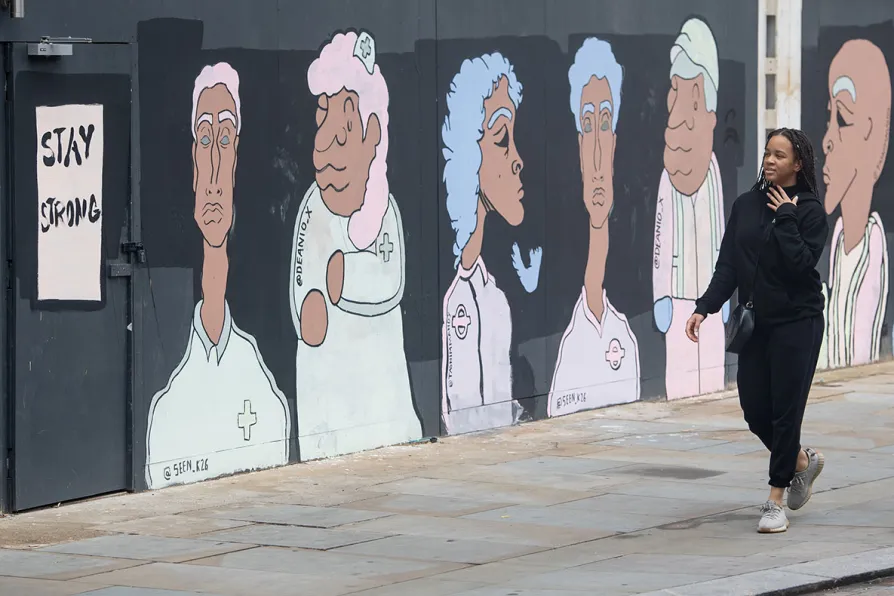The Carpathia isn’t coming to rescue this government still swimming in the mire, writes LINDA PENTZ GUNTER
Economic exploitation ensures structural racism will continue
Tackling endemic societal racism starts with improving health and life chances, which can only be achieved with the decent pay, terms and conditions that too many BAME working people are denied, says HELEN O’CONNOR

 A woman passes a mural showing BAME medical, transport and construction workers, in Waterloo, London, following the introduction of measures to bring England out of lockdown
A woman passes a mural showing BAME medical, transport and construction workers, in Waterloo, London, following the introduction of measures to bring England out of lockdown
THE announcement that the Real Living Wage is set to increase by just 10p an hour in London is a kick in the teeth for the army of BAME workers delivering essential services that are getting us and our families through the pandemic.
It is worth noting that this pay offer from government is actually 50 per cent lower than it was in November 2019, and the underlying message this sends out is that many low-paid workers are being lined up to pick up the costs of this pandemic via the back door.
Research by the Resolution Foundation suggests there is a £3.2 billion pay gap for BAME workers in this country and there have been calls for big companies to reveal their ethnicity pay gaps.
Similar stories

Persistent inequality for women shows we still have a long way to go, but Wales TUC leader SHAVANAH TAJ is confident we can build a fairer country when we work together













